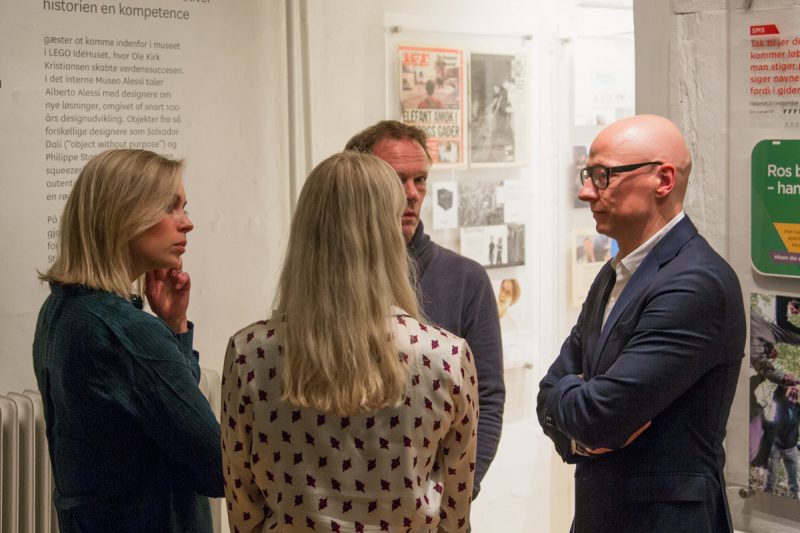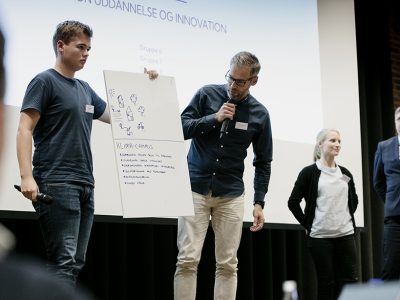Why is it that business leaders tend to rely more on survey data than on thick data? At Re:discover, we entered the chaotic jungle of insights and focused on the benefits of basing your brand development and innovation on qualitative thick data.
Sources for innovation is found in the corners of the data field
Former Managing Director at ReD Associates and board member at Stagis, Frederik Wiedemann, explained how the most fruitful data sources for innovation is found in the extremity of the data collection spectrum. In these corners, thick data and big data rule the world as both methods allow very different insights – thick data (e.g. interviews and observations) examines and reaches the depth of the matter, while big data (giant amounts of electronic data) can be used to predict human behavior if it is used in a cleaver and circular way.
Frederik also elaborated on the methodological paradox that often dominate the gathering of insights, when pointing out that business leaders often rely more on survey data than on thick data. However, survey data (e.g. questionnaires) is the least effective method for generating new insights and is more effective in evaluating and adjusting current actions.
Ask the questions you just have to know the answer to
During the investigating journalist Christian Kirk Muff’s inspiring career he has time and again found himself in places where he had never been before or situations he knew very little about. At Re:discover, he described how research has always been the safety line that pulled him back to shore. He explained how he always starts by asking himself questions he just has to know the answers to. When he went ghost-hunting for Tvind-founder, Mogens Amdi-Petersen, who is hiding and seems impossible to find, he asked himself: “Is this man really a crook? And is he paranoid?”. Through thorough research and extensive networking driven by a great deal of curiosity and smartness he located Amdi-Petersen in Mexico. The efforts resulted in a reality documentary produced by DR3, but as Christian puts it:
“When the research is solid and the insights are obtained through a reliable method, I am more than happy to try different genres for communicating the results.”
Christian Kirk Muff
Anthropology as the basis of brand development
Director of Strategy Nikolaj Stagis talked about the value of using anthropological method as the basis for brand development. Through two examples, he illustrated how qualitative methods can provide deep and “rich” insights that you otherwise would not have identified. In a recent project, anthropological methods uncovered unspoken qualities, that was later used to develop a marketing plan for how a small town can attract more young people to the area.
Nikolaj also explained how qualitative insights saved the Jeep-brand when Clotaire Rapaille helped Chrysler in the 1990s. For a long time Jeep tried to adjust to customer demands, but it was not until qualitative methods and cultural understanding uncovered that the cultural code for Jeep was “horse”, that the brand really turned around. By adjusting and emphasizing certain things, like removable doors and roof, Jeep became the international brand they always wanted.
If you want to learn more about the value of developing your brand strategy based on rich data or if you want a talk about strategy development in your business, contact us – or join our next Re:garding event in May and we’ll talk.













